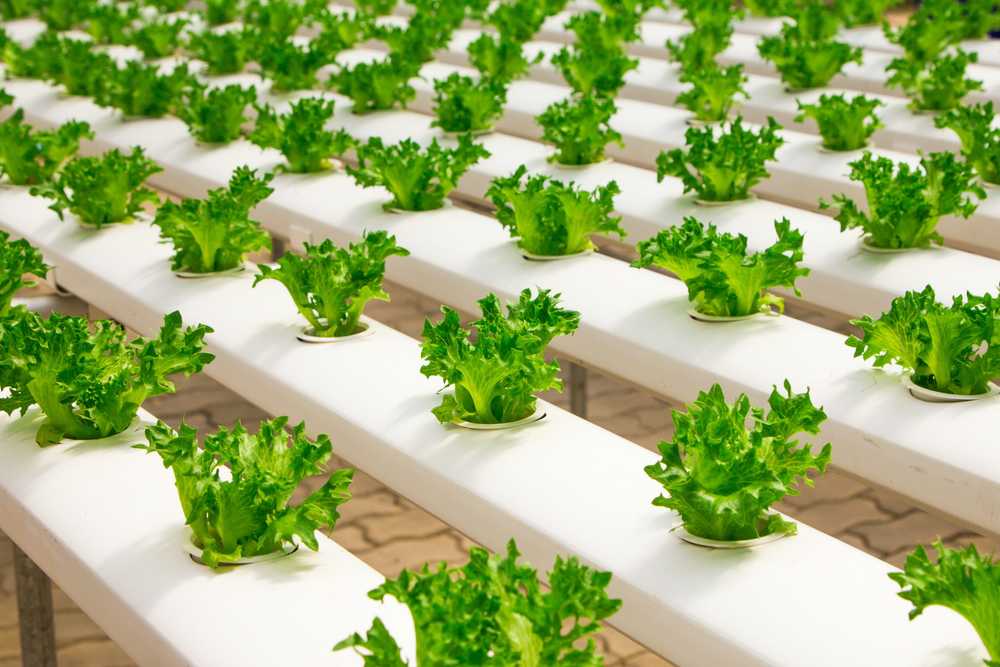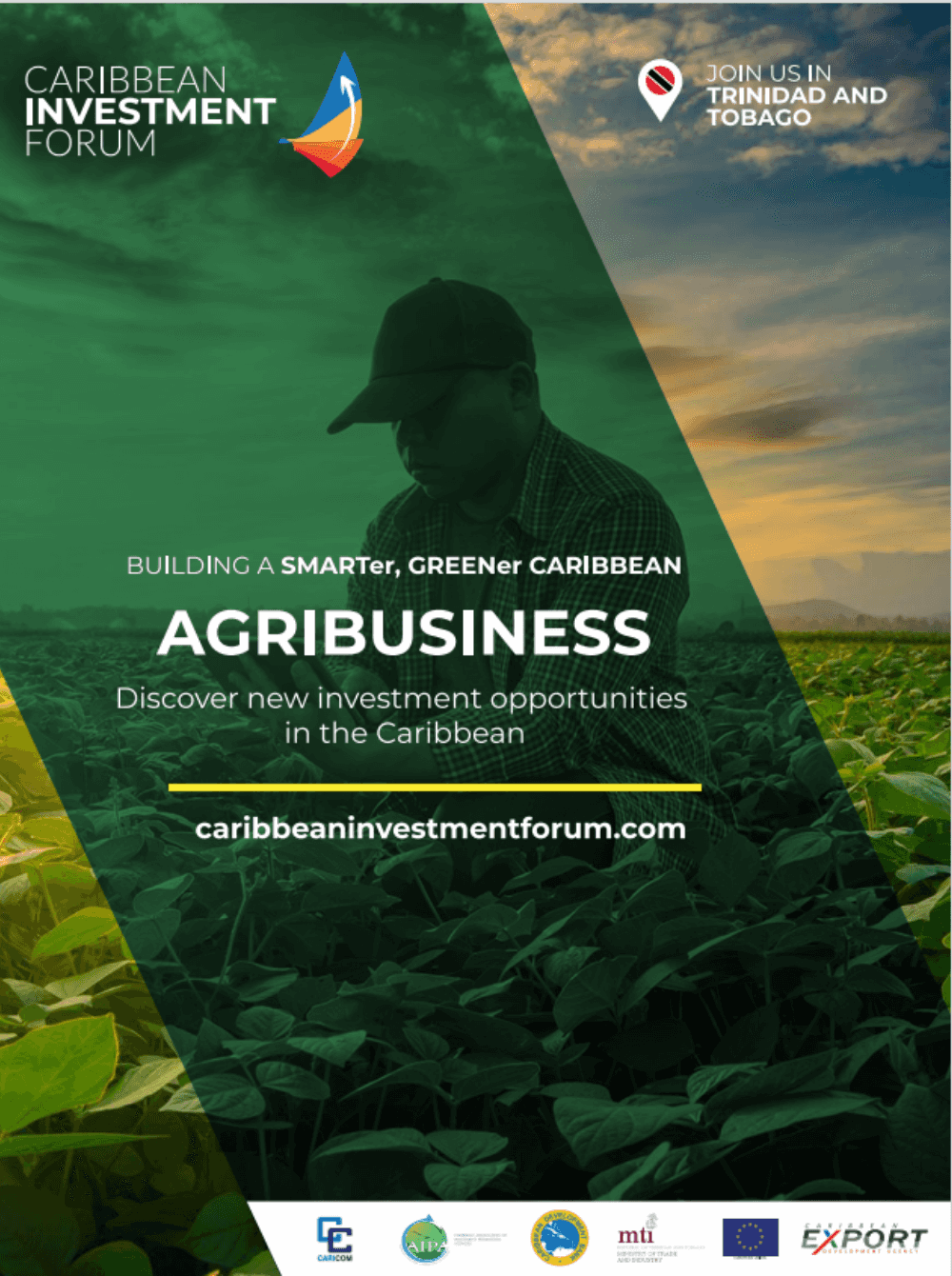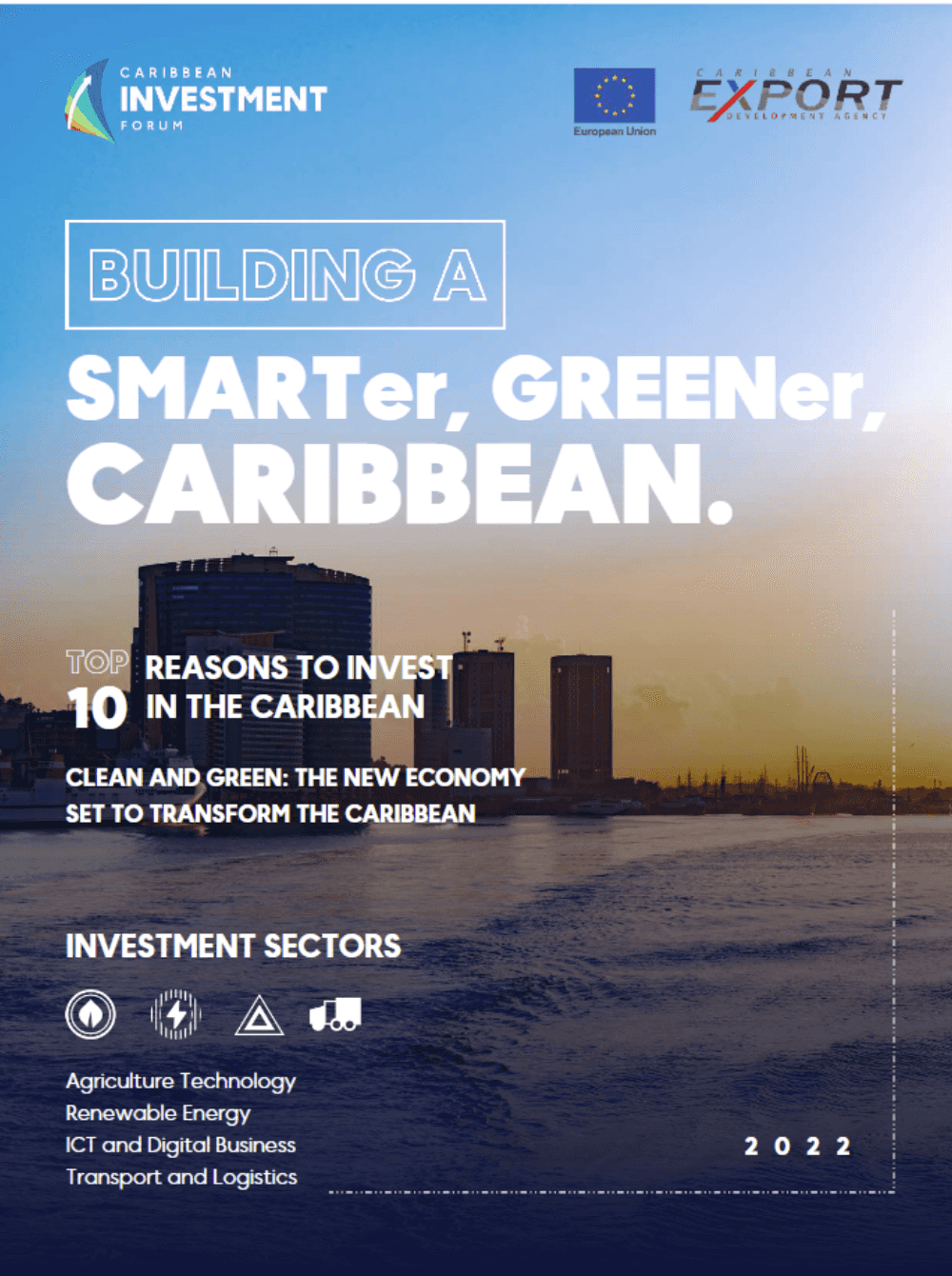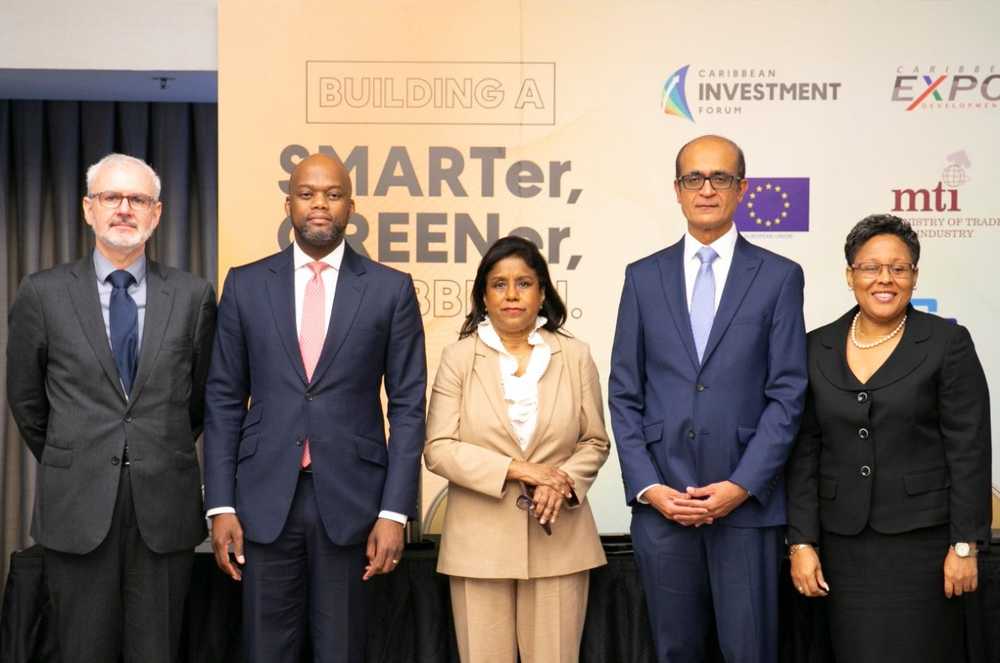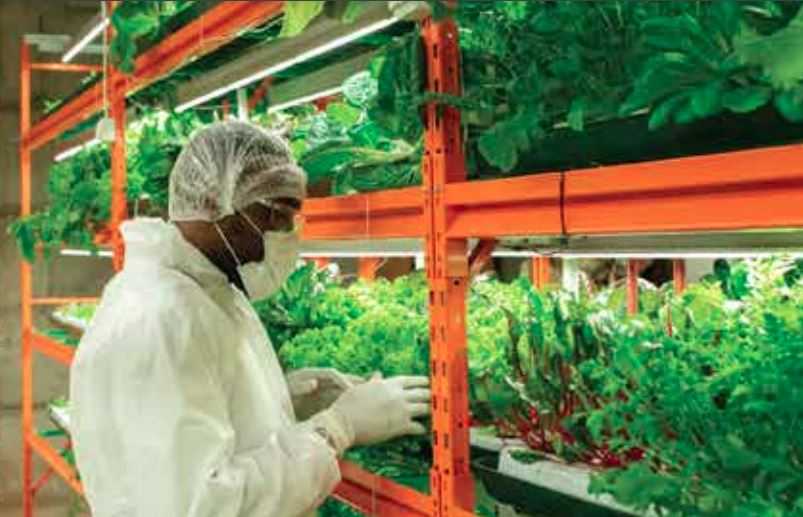If the Caribbean region was cut off from the rest of the world, would its citizens starve? If global events disrupted supply chains, could the countries of the Caribbean continue to feed its some 30 million citizens? Could it afford to?
What about the food we do produce, how stable and secure is that supply? Could a climatic event suddenly or slowly, over time, wipe out or negatively impact production so prices skyrocket, people suffer or even riot?
It is these very real concerns that caused CARICOM Heads of Government to commit the region to reducing its food import bill by 25% by 2025. It is why Caribbean Export made Agro-Technology a focal topic at its inaugural Caribbean Investment Forum last week with the theme of the Roundtable discussion being: “Achieving 25 in 5: Reducing the Food Import Bill Through AgTech Investment.”
CARICOM Secretariat Secretary-General, Dr Carla Barnett, laid out the seriousness of the situation clearly during the Opening Ceremony. She said: “Generally, structural characteristics of our economies have meant that we import more than 60% of the food we eat, with some countries importing more than 80% of the food they eat. Over the period 2018-2020, the CARICOM food import bill was US$13.76 billion or approximately 5% of GDP.”
What is more, she added: “The challenge of sustainable agriculture is growing in severity given the exposure of our agriculture sector to climate change-related risk such as heat extremes, salination of ground water, flooding, drought and hurricanes.”
Also emphasising the point at the opening ceremony, Caribbean Export Executive Director Deodat Maharaj said: “We have singled out agriculture in particular given our keen awareness of food insecurity challenges in the region” and recognising that “business and additional investments are critical to achieve this (25 in 5) vision. He added: “This is especially so given the fact that apart from countries like Belize, Guyana, Dominican Republic and Suriname, we simply do not have land space to produce on the scale required to make us food secure. The answer is that we must look to technology.”
The highly dynamic and interactive Roundtable comprised:
- Moderator Joseph Cox, Assistant Secretary General, Caricom Secretariat
- Mezuo Nwuneli, Managing Partner, Sahel Consulting
- Ralph Birkhoff, CEO & Founder, Alquimi Renewables LLC
- Vassell Stewart, President, Caribbean Agri-Business Association
- Mohindra Persaud, Chief Executive Officer, Nand Persaud & Co
- Richard Sellers, Owner, Circular Fuels
Conference delegates, who included farmers, small agro-business entrepreneurs, potential investors and policy makers contributed to the intense discussion around technology in agriculture. There was clear agreement about the need for farmers and agro-processors to use technology more widely, noting that it was helpful along the entire value chain, including with the big problem of praedial larceny, accelerating production yields and quality, and reducing risks.
There was lively discussion on how to achieve more technology-intensive farming and acknowledgement that young farmers were quite open to using technology but often stymied by cost.
Overarching the discussion was a degree of confidence and optimism that there were solutions to all the problems currently suppressing greater agricultural production and a belief that, once there was a will, the food import bill could be slashed.
Mohindra Persaud, for example, had some pragmatic advice. He said: “Farmers on the whole do not like to adapt to new ideas…and are slow to adapt. My advice is to get technical people to tutor them and be patient so progress can be steady. Otherwise, five years would just move production in a very small way.” He also advised that five minutes of training at frequent intervals would be more effective than giving them a booklet or one day of training.
Highlighting the impact the application of technologies could have, and was already having, on agricultural production in the region, Birkhoff noted that it has already been proven that a hydroponics system does not require arable land, uses significantly less water and “could increase yields by 1,000%”.
One greenhouse farmer in the audience, frustrated in his attempts to grow strawberries, learnt there was an engineering solution and who he could approach for assistance. This highlighted the need for fora where farmers and agro-businesses could share experiences and problem solve to find solutions to their specific issues.
The value of anchor farms connected to a group of smaller, satellite farms was also forwarded as a proven solution, with one presenter explaining the anchor farm could provide the smaller farms with technology, training and better quality inputs such as seed stock and then provide a ready market for the output of those small farms. The overall result was an increased and more consistent supply of a better quality product, he said.
The panel of experts highlighted some of the resources available in and to the region, including service providers, funding, technical expertise to solve production and marketing issues, and consulting advice to match talent or funding with a particular project or business based on size, type of project and type of assistance needed.
Assistant Secretary General Cox put it succinctly. “Anyone who feels food security is a dream must wake up from their dream!”
The inaugural Caribbean Investment Forum took place at the Hyatt Regency in Trinidad and Tobago from November 8-11, 2022. The high-level, business-focused event connected key regional decision-makers, innovators, and entrepreneurs with the world’s most influential investors to explore the investment opportunities available throughout the region. It also served as a launching pad for thought leaders keen on accruing the benefits of first-mover advantages in this developing space.
Under the theme Building A SMARTer, GREENer Caribbean, stakeholders focused, in particular, on investment opportunities in technology and innovation, agriculture technology, renewable energy, and transport and logistics. Projects in these areas will improve the lives of over 30 million Caribbean people in the 23 member countries of CAIPA (Caribbean Association of Investment Promotion Agencies) across the Region.
The regional forum, set to become a flagship event on Caribbean Export’s calendar, was organized by the Caribbean Export Development Agency in collaboration with the Government of Trinidad and Tobago, CARICOM, the Caribbean Development Bank, the Caribbean Association of Investment Promotion Agencies and with the support of the European Union.
Visit our website: www.caribbeaninvestmentforum.com
